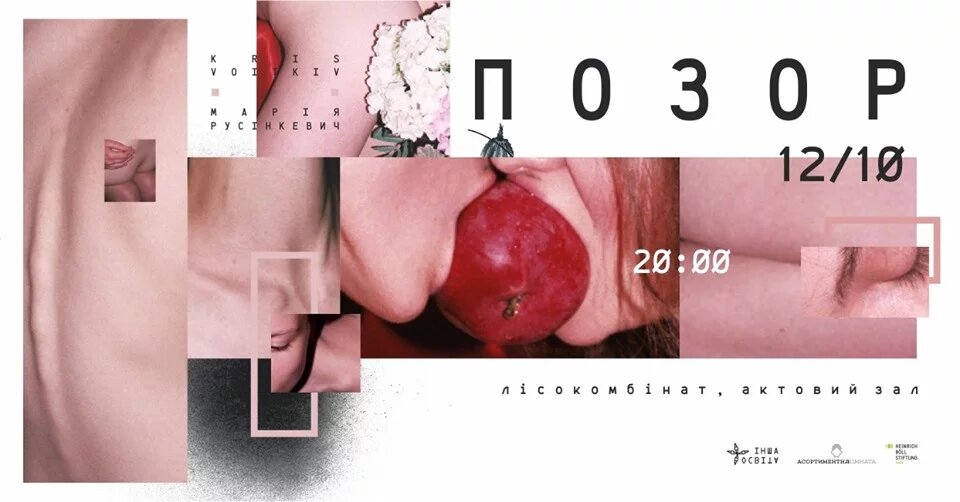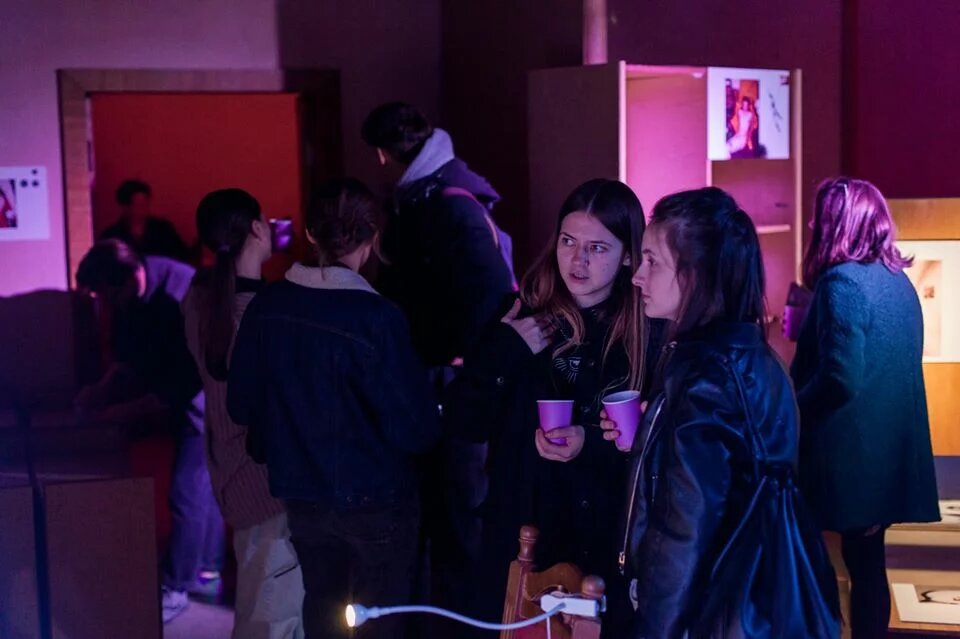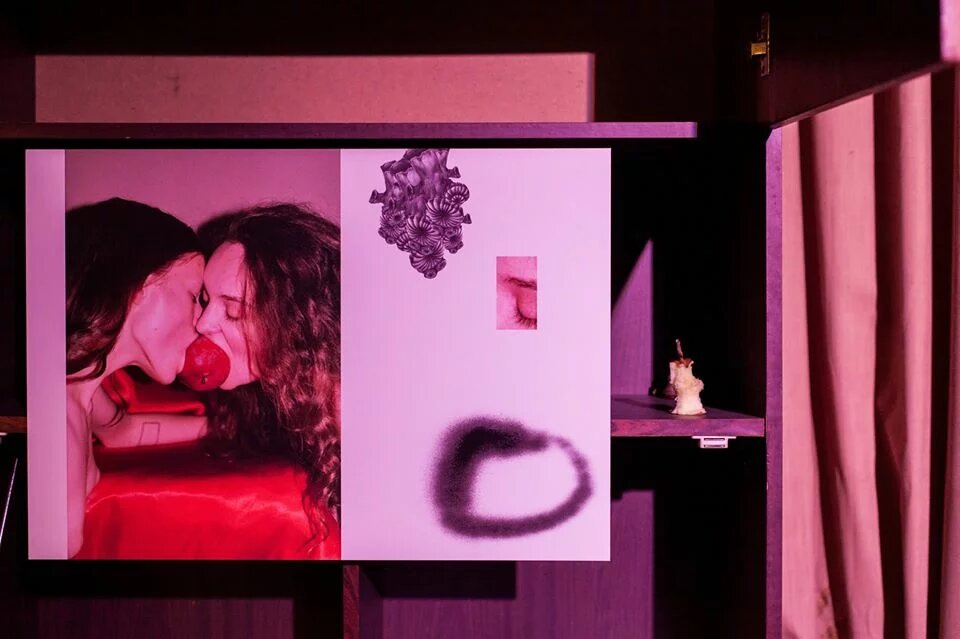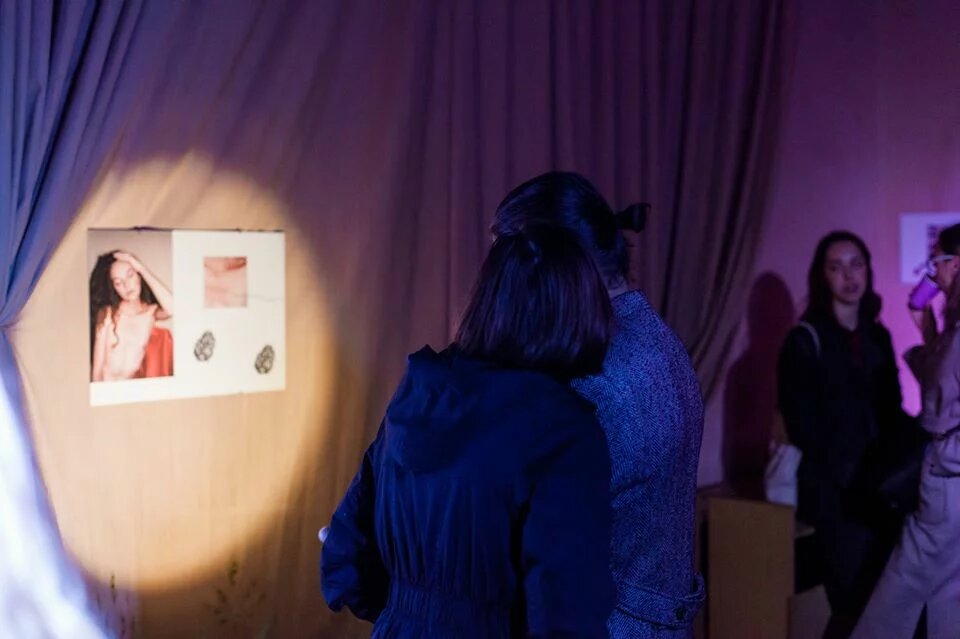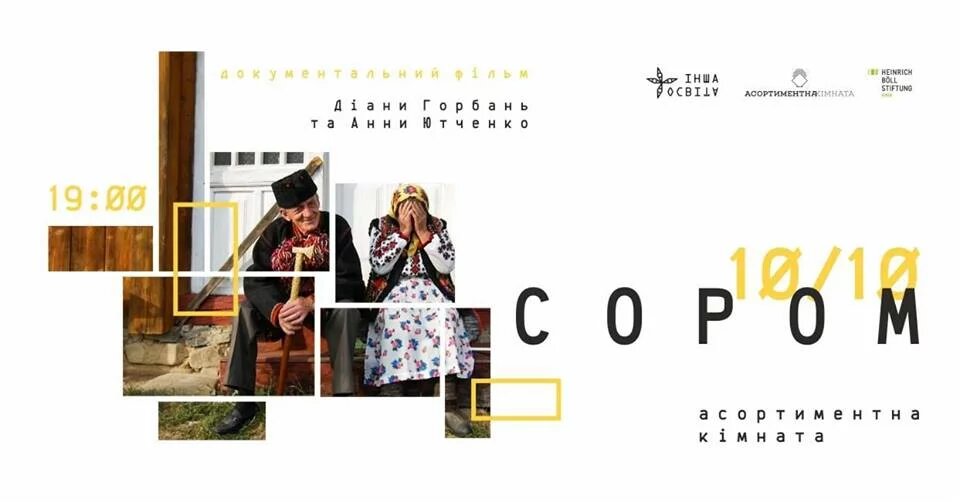
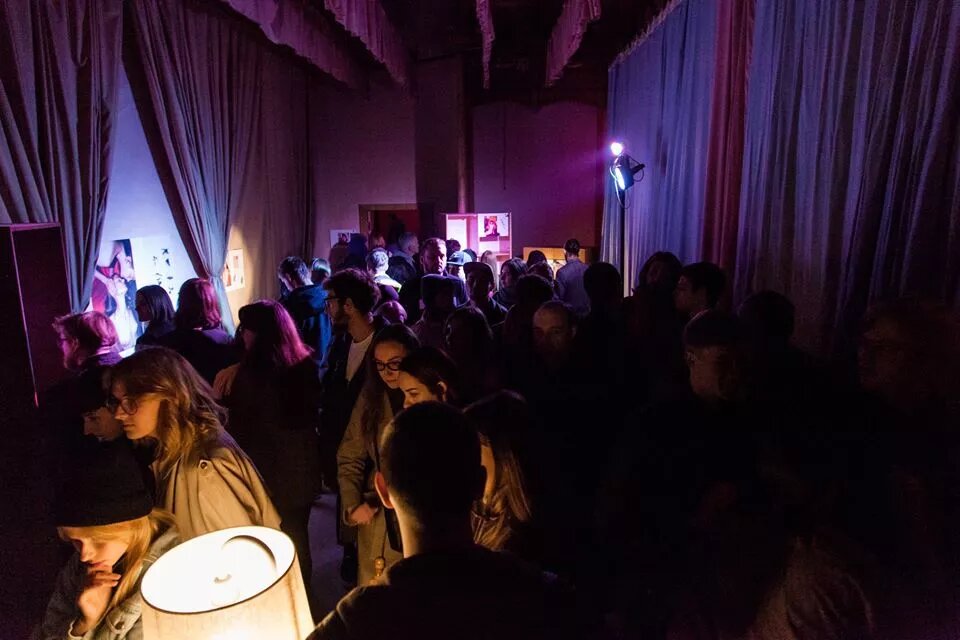
On October 10–12 a project organized by Insha Osvita (“Other Education”) NGO took place. It combined the exhibition Pozor (vernacular for “Shame”) and the screening of a documentary entitled Sorom (“Shame” as well). While different in their content, these works have a similar idea and study the limits of taboo around sexual themes in Galician and Hutsul areas.
Perhaps, you were hoping to see a virgin Hutsul land, with its poetic peaks of the Carpathians and mysterious folksy wizards. Not in the documentary Sorom, though. In this one, Hutsul people sing racy local folk songs and speak about their intimate experiences.
The Sorom project is a documentary created as part of the informal educational program Live History Studies. Its authors Anna Yutchenko and Diana Horban research the sexual experiences of people from Hutsul villages that can be found between the lines of local songs. They study the songs themselves, the reactions of people who sing them and the limits of what is permissible in conversations about one’s sexual life. The authors travelled through Carpathian villages: Babyn, Kryvorivnia, Zamahora, Bystrets between summer and fall.
After the screening, a discussion was held with Diana Horban, curator of the Assortment Room space Anna Potiomkina and sexology expert Olha Kuklo. A video of the conversation can be viewed here (in Ukrainian).
On October 12, the Lisokombinat space hosted the second part of the project — Pozor exhibition.
Pozor (Shame) is a verdict for the society where secrets are out.
In the traditional society, manifestations of women’s sexuality can be perceived as “improper behavior” and “tainted reputation.” On the contrary, modesty and shyness are described as inherently feminine.
Khrystyna Voitkiv, one of the project artists, tells: “I often recall moments from my early childhood, when parents and school teachers would say things like, ‘Don’t bring shame on us!’, ‘Don’t become the shame of the family,’ ‘Most importantly, don’t make us feel ashamed of you,’ etc.
In Ukraine, people watch each other. Especially in small towns. You are always under scrutiny. Self-expression, life choices, personal experience, whether good or bad, successes and failures, all of this has to be assessed by others and only then will you know how you should feel about it. But we have it hardwired into our minds. On the outside, we seem free, but our minds are imprisoned.
The Pozor project is about changes, a new era, a generation aspiring to break free from the prison inside their mind. The photo project is about love between women. It is about beauty, choice, harmony, freedom. But despite that, it was filmed in an apartment behind thick curtains. We could not imagine a manifestation of their love somewhere beyond that room. That's why we wanted to put it all up for everyone to see — to take a step forward and leave fear behind.
Ivano-Frankivsk, where the project took place, is a small conservative city where everyone knows each other. You encounter shame in this type of cities quite a lot. Even though in any traditional society there are people with "non-traditional" sexual orientation, they should keep it hidden lest they have to face annoyance or aggression. Open sexuality is seen as shameful, as something that should be kept at home if it does not fit the traditional ideas of the society. Somebody's love has the right to be displayed, while somebody else's should remain unseen.
“The performance opening the exhibition was created and produced by me and the entire team: artist Maria Rusinkevych, who was the one doing this entire project with us, curator Anna Potiomkina, the actors. It is about those memories and voices from our childhood that wanted to lock us all up in our internal prisons. We tried to show liberation and the desire to get rid of those voices. We wanted people to only think about themselves and the performance, so we asked them to leave their phones at the entrance and to keep quiet. It was all meant to enable them to listen to themselves and accept themselves with all those fears; face them.
A combination of a performance and a visual project was a parallel to the closed and the open. The performance was open on the stage, as a protest in itself. Photos remained behind the curtains, but we had the courage to show them. The secrets came out. It was shame as a coming out and manifestation in itself. Did we manage it? I don’t know. But we did try, and we did speak about it, so that’s already a start,” continues Khrystyna.
The project was supported by Heinrich Boell Foundation, Kyiv Office — Ukraine.
Photos by Andrii Sydoruk
